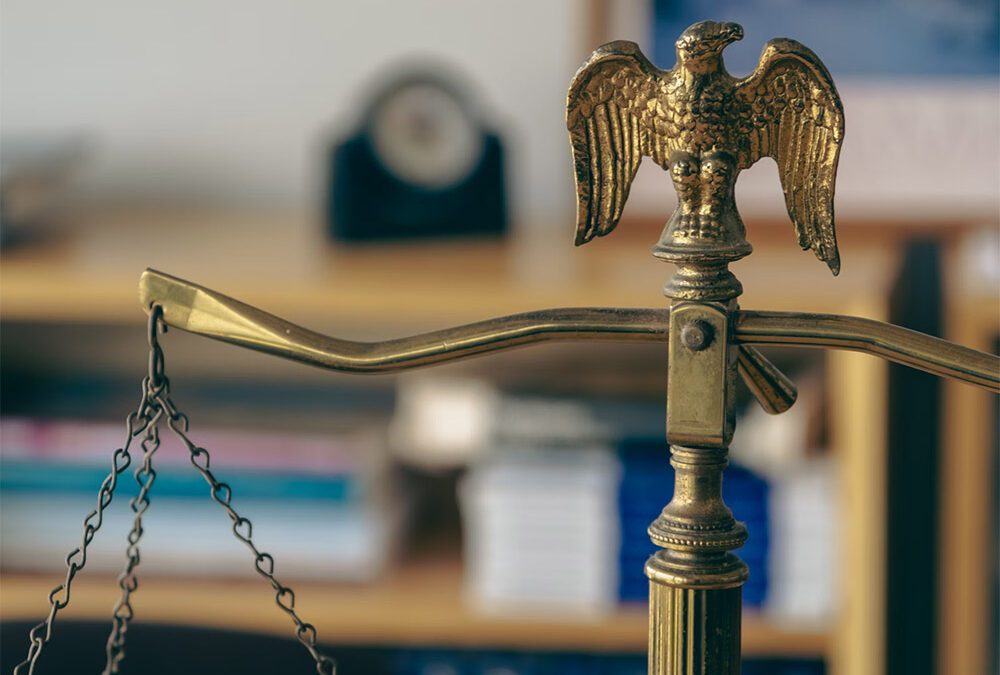Due to the vast assortment of cases that come before the courts, there is a huge variety of expert witnesses that come to court to give testimony.
Expert witnesses are not just human encyclopedias of their individual fields. They also can communicate complex perceptions understandably and clearly.
Their aptitude to communicate complex details plainly and credibly can make them important assets in the courtroom. They must navigate the legal setting with the same skills they apply to their field of expertise, making sure their testimony endures the adversarial atmosphere of a trial. The combination of their competence and expert knowledge is what sets expert witnesses apart and makes them critical in the goal of a fair verdict.
What is an Expert Witness?
An expert witness is an individual who has particular skills and knowledge in a case. This could be in areas such as forensics, medicine, and finance. They are present in court to explain difficult issues that a jury might not understand, emphasizing the vital role that expert witnesses have in criminal defense cases. To be an expert witness, a person must have a reliable professional background and broad education in their area of expertise. In a criminal trial, expert witnesses are critical in giving specialized information that could affect a trial’s outcome.
Expert witnesses don’t give legal advice or show support for either side. Their role is to provide testimony that’s impartial and objective.
Expert Witness Qualifications
To be acknowledged as an expert witness in court, a person must show practical experience and vast research in their field including:
- Certifications
- Professional affiliations
- Published works
The more trustworthy and significant their qualifications, the more influence their testimony will have in court. Additionally, expert witnesses must be able to put their findings in plain words so that a juror can know the details of the evidence.
Types of Expert Witnesses
In criminal defense cases, expert witnesses are vital. Their specific knowledge can provide information that is crucial to a good defense. Here are some common types of expert witnesses used in criminal cases, each furthering the whole defense strategy:
Forensic Scientists
Forensic scientists assess physical evidence like biological samples, DNA, and fingerprints. They can uncover information about the crime scene and what occurred. By exhibiting scientific proof, they can discredit or corroborate the prosecution’s evidence.
Toxicologists
Toxicologists are experts in knowing how substances impact the human body. They are frequently involved in cases where drug overdoses or poisoning are presumed. Their roles involve:
- Substance identification – Examining biological samples to classify toxic substances.
- Effect assessment – Assessing how these substances caused death or impacted the victim’s health.
Medical Experts
Medical experts include various medical professionals. Medical experts can testify in criminal cases to explain the extent and nature of the injuries suffered by a victim of a criminal assault. For example, there’s a difference between bodily injury and serious bodily injury. A forensic pathologist can testify as to the manner and cause of death in a homicide case.
- Pathologists – Specialize in deciding the cause of death via autopsies. Their testimony can corroborate whether a death was natural, foul play, or accidental.
- Emergency medicine physicians – Provide insights into the nature of injuries and their possible effects on the victim’s recovery and health.
- Psychiatrists – Assess the mental state of defendants to decide sanity or competency when the crime occurred.
Psychological Experts
Psychological experts can give important insights into the emotional and mental state of people involved in a case. They typically deal with:
- Criminal profilers – Help law enforcement recognize the behavioral patterns of suspects and foresee their actions based on psychological ideologies.
Digital Forensics Experts
In the technology age, digital forensics experts play a very crucial role. They are tasked with retrieving and examining data from electronic devices. Their expertise includes:
- Data recovery – Recovering hidden or deleted information from cellphones, computers, smartwatches, and other digital storage devices.
- Cybersecurity – Investigating hacking incidents and digital breaches to trace the source and techniques used.
Financial Experts
Financial experts are critical in cases of embezzlement, financial disputes, and fraud. They provide complete analyses of financial records to validate claims or expose inconsistencies. Their roles include:
- Forensic accountants – Check financial records for proof of discrepancies or fraudulent activities.
- Digital forensics specialists – Digital forensics specialists analyze electronic evidence like online activity (i.e. search engine lookup), emails, and cellphone records. Their work can disclose information about a defendant’s activities leading to the alleged crime. This evidence would support the defense’s argument or give context the prosecution might have missed.
- Accountants – In financial criminal cases, accountants are vital. They study financial transactions and records to uncover mismanagement or fraud. Their expertise could clarify difficult financial issues and show reasonable doubt in the prosecution’s case.
Every type of expert witness delivers something different to the defense. Their specific knowledge helps to produce a clear case and enhances the defense’s credibility with the jury.
The Effect of Expert Witnesses in a Criminal Defense Case
Expert witnesses can explain complicated issues, offer alternative explanations, and dispute the prosecution’s evidence, altering the trial’s outcome. Their expertise could make a huge difference in a good defense.
Informing the Jury
Expert witnesses simplify information for jurors. This is critical since jurors don’t have the background to know the particulars. By breaking it down, expert witnesses help jurors comprehend the evidence better so they can make informed decisions.
Disputing Prosecution Evidence
Expert witnesses inspect the procedures and methods used to gather and examine evidence. They can find discrepancies or mistakes that can dispute the prosecution’s case. For instance, a forensic expert can reveal errors in DNA collection processes and put doubt on the evidence exhibited.
Offering Different Explanations
One of the main roles of expert witnesses is to create reasonable doubt. By offering a different explanation, they can dispute the prosecution’s narrative. For instance, a psychiatrist can testify that a defendant’s behavior was due to a mental health disease and not criminal intent, changing the jury’s perception.
Credibility
Expert witnesses heighten the defense’s credibility with concise and comprehensible testimony. Their professional opinions add support to the defense’s arguments, making them more credible. When experts show their findings with conviction, it can strengthen the total defense and resonate with the jury.
Trial Results
Expert witnesses can alter the result of criminal trials. Their specific knowledge and skill to expound on complicated information can sway the jury and the verdict.
Jury’s Perspective
Expert witnesses are important to how a jury views the evidence. They offer precise and objective testimony that helps jurors comprehend complex information that would otherwise be unclear. For instance, a forensic scientist could tell how DNA evidence was collected and studied, making it simpler for a jury to realize its importance. This clearness can make a jury see the evidence more positively to the defense.
Legal and Ethical Considerations
Clients and defense lawyers must know the legal basis around expert testimony. Expert witnesses are crucial in criminal cases. Their credibility and the proper use of their testimony can change the outcome of a case.
Ethical Issues
Ethical considerations are a main concern when using expert witnesses. It’s critical to make sure these professionals are independent and neutral. Expert witnesses should not have any interest in the result of the case. Their role is to give unbiased assessment and testimony to help the court know the correct information.
Defense attorneys need to be cautious in picking expert witnesses. They must verify the credibility and qualifications of the experts to prevent any conflict of interest. This will aid the process and the defense.
Proving Innocence
Expert testimony could be critical in creating reasonable doubt. By giving alternative reasons for the evidence, an expert witness can oppose the prosecution’s account of what happened. For instance, a doctor can testify a defendant’s actions were because of an illness and receive a lesser sentence. In some cases, this testimony could prove the defendant’s innocence.
In Summary
In summary, the role of an expert witness in a criminal case is multi-layered and essential.
Their expertise, when communicated with truthfulness and clarity, can shed light on the truth and lead the jury towards a fair decision. At Q|Nav, we understand the significance of expert testimony. Our seasoned criminal defense consultants are skilled at working with top-tier expert witnesses to create a robust defense for our clients. If you or a loved one is facing a criminal case and needs a solid defense, reach out to us and schedule a free consultation. Let our legal expertise and dedication to justice benefit you in your criminal case.
If you or a loved one are facing criminal charges, having the right defense could make all the difference. Our team knows how to tactically include expert witnesses to make a strong defense.

